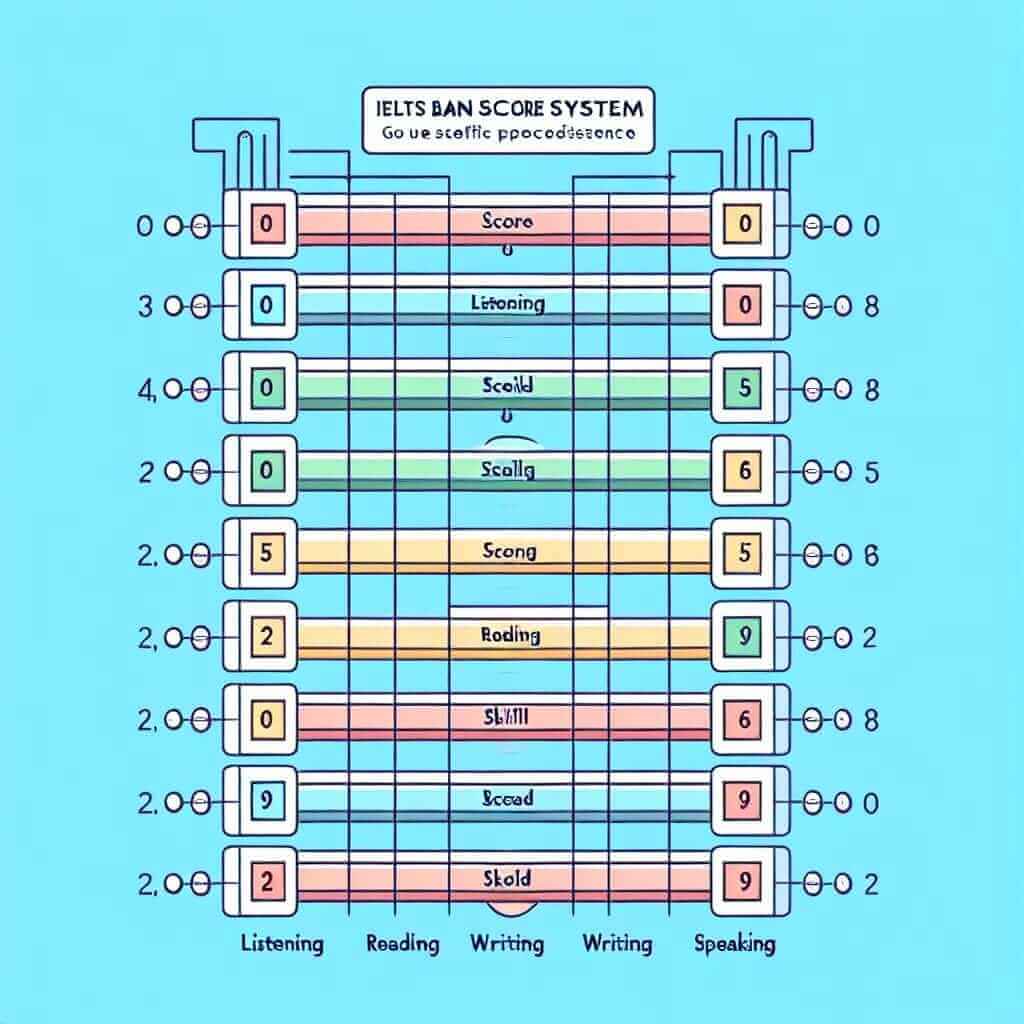As an IELTS instructor with over two decades of experience, I often encounter students who are unsure about how their IELTS scores are calculated. This lack of understanding can lead to confusion and unnecessary anxiety. Therefore, it’s crucial to grasp the scoring system to effectively strategize your IELTS preparation. This article will delve into the intricacies of IELTS score calculation, providing you with a crystal-clear understanding.
How Your IELTS Overall Band Score Is Determined
The IELTS exam assesses your English language proficiency across four sections: Listening, Reading, Writing, and Speaking. Each section receives an individual band score ranging from 0 to 9, with 9 being the highest. Your overall IELTS band score is the average of these four individual scores, rounded to the nearest half band.
For instance, if your individual section scores are:
- Listening: 7.0
- Reading: 6.5
- Writing: 7.5
- Speaking: 8.0
Your overall band score would be calculated as follows:
(7.0 + 6.5 + 7.5 + 8.0) / 4 = 7.25
This score is then rounded to the nearest half band, resulting in an overall IELTS band score of 7.5.
Importance of Understanding Half Bands
The IELTS scoring system includes half bands (e.g., 6.5, 7.5) to provide a more precise reflection of your English language ability. While some institutions may require a specific whole band score, others accept half bands. Therefore, aiming for a half band higher than your target score can be advantageous.
Common Queries about IELTS Score Calculation
1. Is one IELTS skill area more important than another in determining my overall score?
No, all four skills are weighted equally in the calculation of your overall IELTS band score. Each skill contributes 25% to the final score.
2. What happens if my overall band score calculation results in a quarter band (e.g., 7.25)?
As mentioned earlier, the overall band score is rounded to the nearest half band. In this case, 7.25 would be rounded up to 7.5.

Tips to Maximize Your IELTS Score
- Focus on All Skills: Since each skill contributes equally to the overall score, neglecting any one area can significantly impact your final band.
- Practice Regularly: Consistent practice is key to improving your English language skills. Aim to practice all four skills regularly using authentic IELTS materials.
- Familiarize Yourself with the Scoring Criteria: Understanding the specific criteria used to assess each skill can provide valuable insights and help you tailor your preparation accordingly.
- Seek Professional Guidance: Consider enrolling in an IELTS preparation course or working with an experienced tutor who can provide personalized feedback and guidance.
Conclusion
A comprehensive understanding of the IELTS score calculation is essential for effective exam preparation. Remember that consistent effort and strategic practice are crucial to achieving your desired score. By focusing on all skill areas and familiarizing yourself with the scoring criteria, you can confidently approach the IELTS exam and maximize your chances of success.